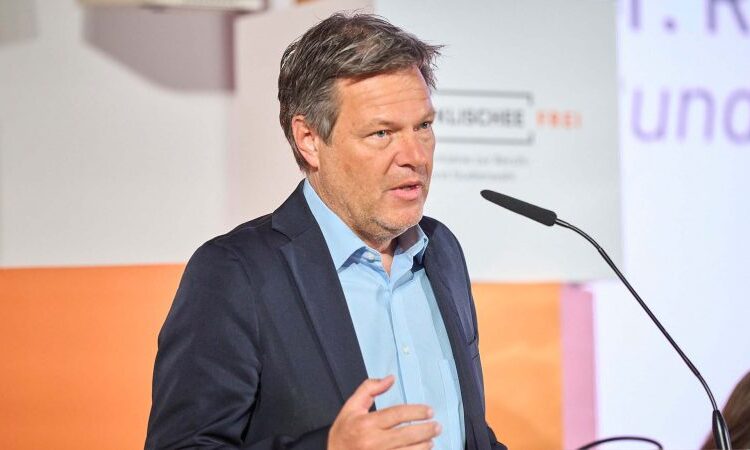
Germany’s skills shortage is particularly high in professions typically prone to gender clichés, participants of a conference on vocational orientation said on Thursday (4 May), stressing the need to reduce gender bias in career choices.
As Germany faces serious labour shortages, particularly in professions crucial for the green and digital transition, such as the IT or construction sector, the government is trying to counteract.
Apart from improving labour market access for skilled immigrants, this should also include better matching students with vocational training programmes, politicians stressed at the conference in Berlin.
This would require fighting gender clichés in career choices, which keep young people from unfolding their full potential, they said.
“As the minister of economy, I am particularly concerned that we in Germany do not leave any potential unused, that people are kept out of the labour market because of glass ceilings, because of clichés, or that they do not dare to enter certain professions,” Robert Habeck (Greens) told a conference in his ministry on Thursday.
As legal differences between genders have been abolished, this was no longer a legal issue but more one of a change of mindset, Habeck stressed.
“I think we all know how powerful clichés are, even in our everyday lives,” he added.
Nevertheless, tackling gender stereotypes would be a political task, to give all young people the chance to succeed in the labour market.
Furthermore, he said, “we will never reach our goals in other areas either if we do not succeed in making the accesses to a vocation as free of stereotypes as possible”, referring to the green and digital transition and the need to replace retiring workers.
The link between gender stereotypes and the shortage of skilled workers was also highlighted by Miguel Diaz, head of the government-funded initiative “Klischeefrei”, which aims to break down gender stereotypes in career choices.
“We know that professions with a particularly high gender concentration are also professions with a particularly pronounced shortage of skilled workers,” Diaz said.
“This means that the higher the proportion of men or women in an occupation, the greater the shortage of skilled workers,” he added.
2.5 million young people without qualifications
When it comes to matching young people to qualification programmes, Germany still has a lot of homework to do, politicians stressed.
“We have a sad record of now over two and a half million young adults starting out in the world of work with no qualifications at all, academic or vocational,” said Jens Brandenburg (FDP/Renew), state secretary at the Ministry of Education.
“If two and a half million people leave school without a vocational qualification, then maybe it’s not just the 2.5 million people who are at fault, but maybe it’s the structure of how we lead them to the vocational qualification,” Habeck said.
Meanwhile, educational success in Germany depends greatly on the education and income level of the parents, a recent study has shown, leading to lower social mobility in Germany than in other EU countries.
To address this, Brandenburg wants to promote matching programmes for vocational training places to students, including those at the highest form of high school, who would also be eligible to study at University.
Those high schools “don’t just train for universities. We should also approach this without stereotypes,” Brandenburg said.
EU Green Industry Plan: Youth and women, get to work
As unemployment across the EU has sunk to record low levels, the European Commission has highlighted the inclusion of young people and women as key to addressing labour shortages.
This was also crucial to reach the targets of the “Green Deal Industrial Plan”, the EU’s initiative to expand domestic production of green technologies, Commission President Ursula von der Leyen said when presenting the plan in February.
To shed light on the issue, 2023 was also named the “European Years of Skills”, a rather symbolic move, as most education and labour market issues remain the remit of the member states.
Germany is also lagging behind other European countries when it comes to the participation of women in the labour market, Kerstin Griese (SPD/S&D), state secretary at the German Ministry for Labour and Social Affairs, told conference participants.
“In Germany, the percentage of mothers in employment has risen about 10% in the last ten years,” Griese said.
According to Eurostat data, the gap between part-time work among women and men is particularly high in Germany, which ranks third within the EU, with only the Netherlands and Austria having an even higher gender difference.
[Edited by János Allenbach-Ammann/Zoran Radosavljevic]









